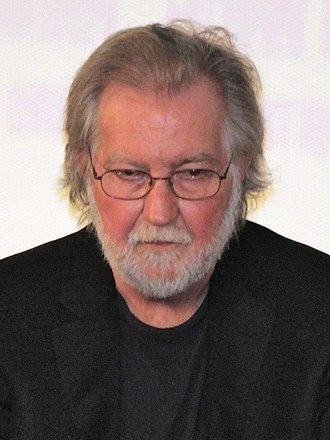Hooper Last Name Origin, History, and Meaning
Where did the surname Hooper come from? What does the surname Hooper mean? Discover the history and meaning of the last name Hooper and family migration on YourRoots Map.
Surname Hooper Origin: What does the last name Hooper mean?
The surname Hooper, originating in England, is derived from the archaic term "hooper," which referred to the individual who fitted hoops around barrels or buckets made by a cooper. This surname first appeared in records from England in the early 15th century and remained closely associated with the United Kingdom through the 16th century. By the 17th century, there was a significant migration of individuals with the surname Hooper to the United States, where it became prominent. Today, YourRoots data shows that the Hooper surname can be found in various countries worldwide, including the United States, the United Kingdom, Canada, Australia, New Zealand, South Africa, and Ireland.
YourRoots data confirms the presence of the Hooper surname in the United Kingdom since the 15th century, with a notable increase in the United States during the 17th century. The surname Hooper has continued to expand globally, with records indicating its presence in countries such as Canada, Australia, and Ireland. This surname reflects a historical connection to assisting coopers in their trade and has evolved to be present in diverse regions and cultures around the world, showcasing its enduring legacy and widespread distribution.
Hooper Last Name History: Where did the last name Hooper come from?
Origin of Hooper Surname: Where does the last name Hooper originate from?
According to YourRoots data, the surname Hooper first appeared in records from England (United Kingdom) around the early 15th century. Please note that this reflects only YourRoots data for the exact “Hooper” spelling and does not include other record sources or surname variations.
History of the Last Name Hooper: What does the Hooper surname history look like in the early days?
The “Hooper” surname remained closely associated with England (United Kingdom) from the 15th through the 16th century. YourRoots data shows a significant rise in the volume of Hooper family records in the United States during the 17th century, surpassing the frequency in the United Kingdom. This indicates a significant migration or spread of the Hooper surname to the United States during this period.
Global Spread: Where can we find the Hooper surname today?
The volume of records with the Hooper surname grew significantly in the United States during the 18th and 19th centuries, indicating a continued trend from the previous century. The “Hooper” surname remains prominent in the United States, according to YourRoots data. However, it's important to note that the Hooper surname can also be found in other regions worldwide. It appears in several countries, including but not limited to the United Kingdom, Canada, Australia, New Zealand, South Africa, and Ireland.
Explore Hooper last name heritage and Hooper surname origin based on YourRoots Map data
 VIEW THE ORIGIN OF SURNAME HOOPER
VIEW THE ORIGIN OF SURNAME HOOPERFamous People With Hooper Surame?

Tobe Hooper
Willard Tobe Hooper (January 25, 1943 – August 26, 2017) was an American filmmaker known for his iconic work in the horror genre. He gained fame with his chilling masterpiece "The Texas Chain Saw Massacre" in 1974, which became a classic and influenced generations of horror filmmakers. Hooper also directed other notable films like "Poltergeist" and "Lifeforce." His unique storytelling and directorial style cemented his status as a pioneer in the horror industry, earning him recognition as one of the most influential horror filmmakers of all time. Hooper's impact on the genre continues to be felt today, making him a legendary figure in the world of cinema.

Nellee Hooper
Paul Andrew "Nellee" Hooper (March 15, 1963 - ) is a British record producer, remixer, and songwriter known for his work with artists like U2, Smashing Pumpkins, and Soul II Soul. He made his mark in the late 1980s and continued to produce Grammy-winning albums and singles, such as U2's "How to Dismantle an Atomic Bomb." Hooper also ventured into film scoring, receiving accolades for his work on Baz Luhrmann's "Romeo + Juliet." With a career spanning decades, Hooper's influence in the music industry remains strong, making him a notable figure in the world of production and composition.

Mr. Hooper
Mr. Harold Hooper (October 4, 1905 – December 7, 1982) was a beloved character played by Will Lee on the iconic television series Sesame Street. As the original proprietor of Hooper's Store, Mr. Hooper was known for his slightly cranky yet good-hearted demeanor, bridging the gap between generations. He had a special relationship with Big Bird and was a key figure in teaching young viewers about difficult topics. Lee's portrayal of Mr. Hooper left a lasting impact on audiences, making him a cherished part of the show's history.

Austin Hooper
Austin Manuel Hooper (born Oct 29, 1994) is an American football player known for his role as a tight end for the New England Patriots in the NFL. He rose to fame during his college years at Stanford University, where he excelled as a standout player. Hooper was drafted by the Atlanta Falcons in 2016 and quickly made a name for himself in the professional football world. With an impressive career filled with accolades and achievements, Hooper continues to showcase his talent on the field, captivating fans with his skills and determination.

Claire Hooper
Claire Hooper (born 5 Sep 1976) is an Australian stand-up comedian, TV and radio presenter, and writer. She co-hosted The Great Australian Bake Off and was a team captain on Good News Week. Hooper has performed at the Melbourne International Comedy Festival since 2005 and appeared on various shows like The Project and Would I Lie to You? Australia. With a background in theatre, she won awards for her comedy and unique shows like "Oh" and "Show Girl". In 2025, she will host an Australian version of House of Games. Hooper continues to make waves in the comedy world with her wit and creativity.
All images displayed on this page are sourced from Wikipedia or Wikimedia Commons.We use these images under their respective Creative Commons or public domain licenses. Wherever applicable, author attributions and license information are provided. If you believe an image is used incorrectly or outside its license terms, please contact us so that we can review and correct the issue.




.png)